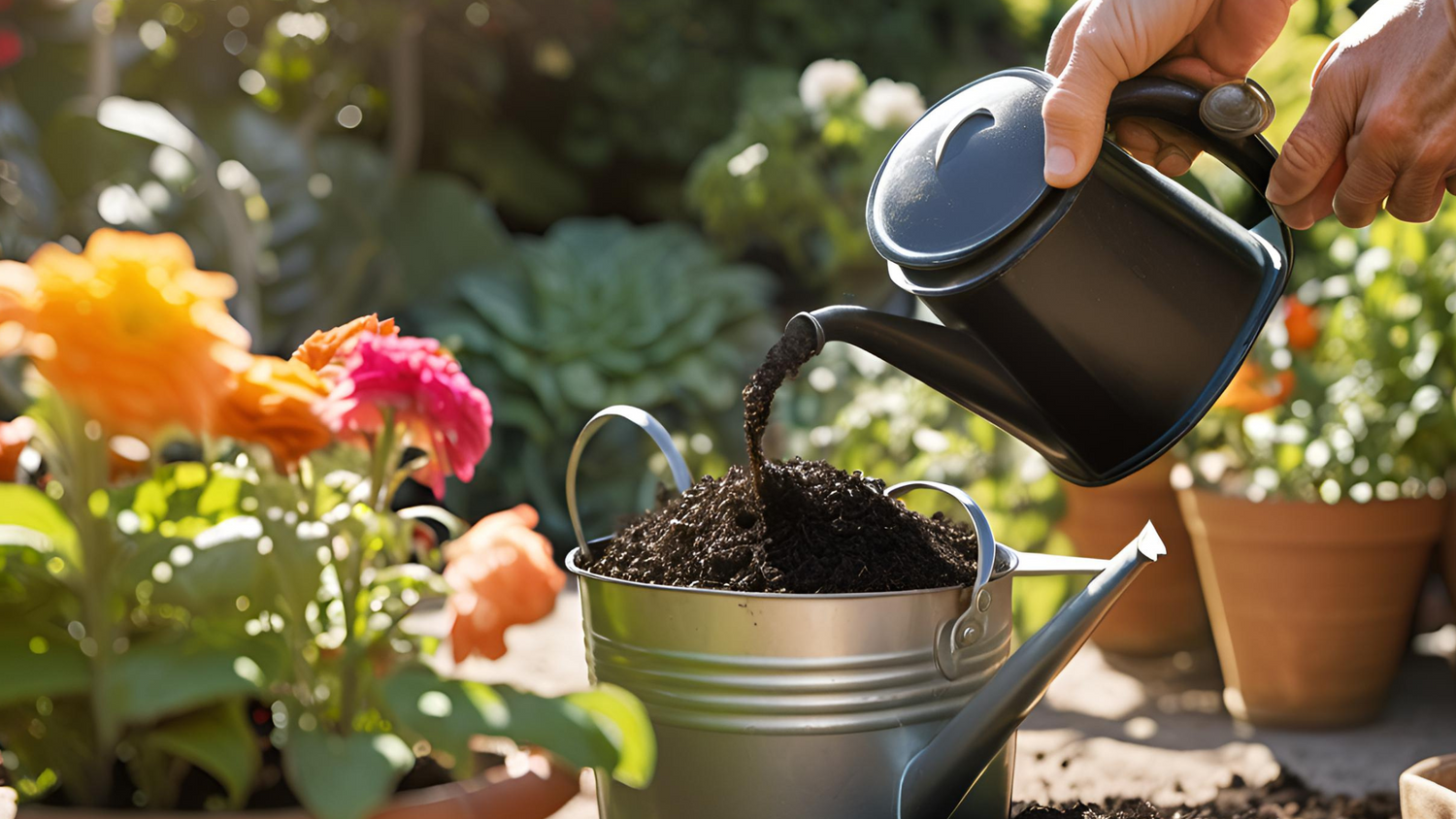In the vibrant world of organic gardening, compost tea is revered as a miracle elixir, beloved for its ability to boost plant health and naturally provide abundant nutrients. For those unfamiliar with this organic phenomenon, fear not—our comprehensive guide is designed to enlighten you. We'll explore the essence of compost tea, show you how simple it is to conjure up this potent liquid right in your backyard and reveal how it can breathe life into your garden. From enhancing soil fertility to safeguarding against diseases, compost tea is the secret ingredient for a thriving, resilient garden ecosystem. Whether you're a budding enthusiast or an experienced green thumb, prep yourself to imbibe the wisdom of compost tea and witness your garden flourish as never before.
What is Compost Tea?
Compost tea is a liquid solution or brew made by steeping compost in water. It aims to extract beneficial microorganisms such as bacteria, fungi, protozoa, and nematodes from compost. These organisms enhance soil health by improving its structure, providing nutrients, and suppressing plant diseases.
The essence of compost tea comes from its ability to quickly provide these microbial benefits to the soil or plants without applying solid compost. This method is beneficial for applying to leaf surfaces, which can help inhibit various foliar diseases.
Benefits of Compost Tea
Before diving into the process of making compost tea, understanding its numerous benefits can clarify why it’s worth the effort:
- Improves Plant Growth and Health: Compost tea enriches the soil, leading to healthier and more robust plant growth.
- Enhances Soil Structure: The microorganisms in compost tea help create a crumbly, aerated soil structure, which allows roots to expand easily and access nutrients and water efficiently.
- Natural Disease Suppression: Beneficial microbes introduced via compost tea suppress or outcompete harmful pathogens, reducing the need for chemical fungicides and pesticides.
- Increases Nutrient Availability: Compost tea microbes help break down soil nutrients into forms more easily absorbed by plant roots.
- Eco-friendly: It’s a natural, organic solution, reducing reliance on chemical fertilizers and enhancing biodiversity in your garden.
Making Compost Tea: A Step-by-Step Guide
Materials Needed:
- High-quality compost
- Water (preferably rainwater or dechlorinated tap water)
- Aeration device (an aquarium pump with an air stone or similar)
- Brewing bucket or tank
- Strainer (burlap sack, cheesecloth, or fine mesh bag)
- Optional additives (unsulfured molasses, seaweed extract, fish hydrolysate)
1. Choosing Your Compost:
Your compost tea's quality heavily relies on the compost you use. It should be rich, dark, and full of organic matter. Either homemade compost or bought high-quality organic compost works well.
2. Water Quality:
Chlorine in tap water can kill the beneficial microbes in your compost. If you're using tap water, let it sit out for at least 24 hours to allow the chlorine to dissipate or use a dechlorinator. Rainwater is an excellent alternative as it is naturally soft and devoid of chlorine.
3. Preparation:
Place about 4-5 cups of compost in your strainer bag. Secure the bag and suspend it in your bucket or brewing tank filled with water. Ensure the bag is fully submerged to maximize the contact between the compost and the water.
4. Aeration:
Oxygen is critical to the brewing process as it supports the growth and activity of aerobic microorganisms. Attach your aeration device to the bucket or tank to provide continuous air supply throughout the brewing process.
5. Add Nutrients:
While optional, adding simple carbohydrates like unsulfured molasses can fuel the microbial activity in the tea. A tablespoon per gallon of water is sufficient. Other additives like seaweed extract or fish hydrolysate can provide additional nutrients and growth hormones.
6. Brewing Time:

Brew your compost tea for 24 to 36 hours. Brewing beyond this timeframe can lead to the development of anaerobic conditions, which could foster harmful bacteria.
7. Finishing Up:
After brewing, remove the compost bag and allow the tea to settle. Strain the liquid compost tea into another container through a fine mesh to eliminate any debris.
Using Compost Tea
When and How to Apply:
Compost tea can be applied in various ways, including foliar application (sprayed on plant leaves) or soil drench (poured around the base of plants). Early morning or late afternoon is the best time to apply compost tea to reduce UV exposure and maximize microbial survival on plant surfaces.
1. Foliar Application:
When spraying on leaves, ensure to cover both the top and underside of the leaves. This method is particularly effective in managing foliar diseases.
2. Soil Application:
For soil application, simply pour the tea around the base of the plants, saturating the soil well. This enhances root health and nutrient uptake.
Maintaining Your Garden's Health
Regular applications every 2-4 weeks during the growing season can profoundly benefit plant health and productivity. However, avoid over-application, which could lead to nutrient imbalances and other unforeseen issues.
Final Thoughts
Compost tea is versatile and indispensable in the organic gardener’s toolkit. Embracing the art of making and employing this nurturing brew not only elevates the health and productivity of your plants but also benefits the broader ecosystem in which your garden thrives. This sustainable approach to plant care helps create a harmonious balance between your garden and the natural world, fostering biodiversity and promoting environmental stewardship. Remember that, like a fine wine, the secret to an exceptional compost tea lies in the quality of compost you start with and the attention to detail during brewing. So cherish the ritual of brewing your own, watch as your plants respond with vigor, and join the ranks of organic gardeners who understand that the best yield nurtures not just our gardens but the earth itself. Here’s to happy gardening and the bountiful rewards of tending to our plants with care and wisdom!





Leave a comment
This site is protected by hCaptcha and the hCaptcha Privacy Policy and Terms of Service apply.